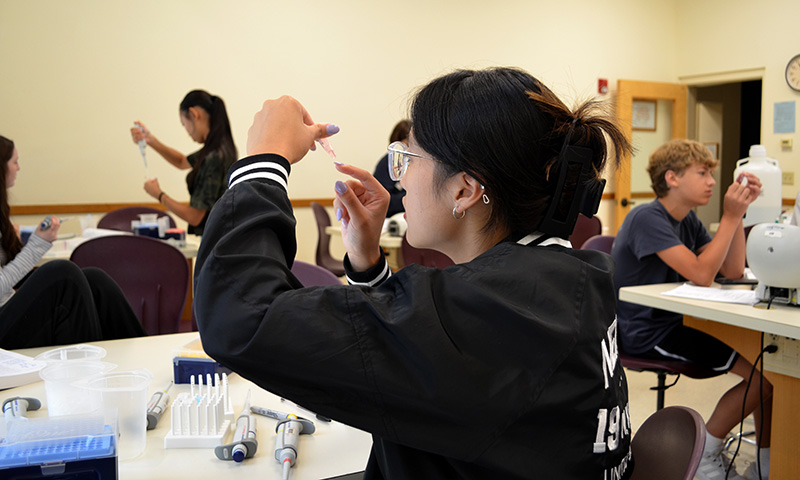DNA Science
A course on lab techniques of recombinant DNA technology and gene cloning

DNA Science is offered in-person at all DNALC locations.
In-Person DNA Science
The inauguration of the Human Genome Project in 1988 marked the beginning of a national commitment to apply DNA technology toward understanding human health and development. Biologists have gained the extraordinary ability to dissect any of the approximately 30,000 genes that compose human chromosomes. Tracing the molecular pathway through which hereditary information flows between DNA, RNA, and protein has added rich detail to our understanding of how human life develops from fertilized egg to adulthood.
The abstract nature of molecular genetics can best be overcome by approaching the subject in the same manner as scientists—by asking questions and doing experiments. The DNA Science curriculum introduces high school and college students with little or no research experience in molecular genetics to the elegant tools of modern biotechnology, and is centered around laboratory work. Each experiment acts as a stepping stone for the next. Students begin with the basic techniques of DNA restriction, transformation, and isolation; then apply them to the construction and analysis of a simple recombinant. Students will:
- examine bacterial growth curves using the E.coli genetic system;
- evaluate the difference between the rapid and classical method of bacterial transformation by calculating transformation efficiencies using pAMP and pKAN plasmids;
- perform a restriction analysis and gel electrophoresis, then graph the results to understand COS sites; and
- digest plasmids with restriction enzymes, ligate the fragments together, then transform the recombinant-DNA, and finally perform a plasmid minipreparation of the new recombinant to identify how it originally ligated.
Details:
- Grades: entering grades 10–12
- Monday to Thursday 9:30 a.m.–4:00 p.m., Friday 9:30 a.m.–2:00 p.m.
- $700 per student
- Available at:

